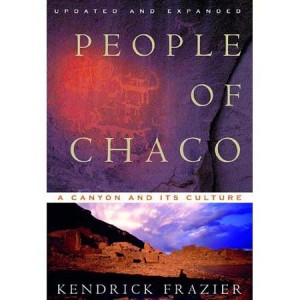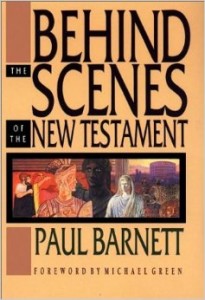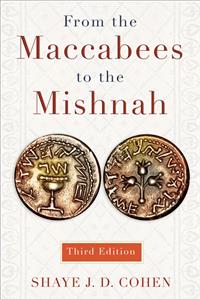Books … Opening Our Minds … Expanding our World
Author: Bobby Valentine | Filed under: Bobby's World, Books, Exegesis, Jesus, Jewish Backgrounds, Preaching, Reading “Reading is to the mind what exercise is to the body” -Sir Richard Steele
“Reading is to the mind what exercise is to the body” -Sir Richard Steele
Reading helps us understand our world and our place within it. Being a person that is often alone at night, and a person that does not have cable/satellite tv, I find several hours each night that are “silent.” Until recently I did not have internet at home either … so how to fill that time? Well I read … and watch movies if I can. Most of the books I read will be non-fiction (there are exceptions to this) and often religious/historical in nature. Here are a few works that I have enjoyed …
Often when “we” think of American Indians the image of tee pees come to mind. A couple years ago I  learned of the Anasazi, a people that flourished a thousand years ago. I took the girls to camp in Chaco Canyon in NM in the shadows of their ruins. What an awesome sight reminding me of pictures of Babylon or Ur! I just finished reading Kendrick Frazier’s People of Chaco: A Canyon and Its Culture (revised and expanded). Frazier, and other scholars, dislike the term Anasazi however. These Americans were a sophisticated group of people with engineering and architectural skills that are amazing. Pueblo Bonita is a marvel that so few US Americans know about.
learned of the Anasazi, a people that flourished a thousand years ago. I took the girls to camp in Chaco Canyon in NM in the shadows of their ruins. What an awesome sight reminding me of pictures of Babylon or Ur! I just finished reading Kendrick Frazier’s People of Chaco: A Canyon and Its Culture (revised and expanded). Frazier, and other scholars, dislike the term Anasazi however. These Americans were a sophisticated group of people with engineering and architectural skills that are amazing. Pueblo Bonita is a marvel that so few US Americans know about.
I have been on a “NT” backgrounds kick lately. I have read two very good but very different works recently in this area. Paul Barnett’s older (1990s) Behind the Scenes of the New Testament is an outstanding and sprightly composed work. It has lots of line drawings, maps  and charts to help conceptualize the information. In eleven chapters he covers the history of the first century as it relates to the New Testament. Two outstanding chapters were “Why Was Jesus Remembered?” and “The Gospels” are worth the book. This is an ideal book for a Sunday School teacher, elder, preacher that does not want to get overwhelmed and has limited knowledge of the social context of early Christianity. Reading the Gospels, Acts and Epistles will be enriched by Barnett. I am always looking for a good solid work I can recommend for students and this is one.
and charts to help conceptualize the information. In eleven chapters he covers the history of the first century as it relates to the New Testament. Two outstanding chapters were “Why Was Jesus Remembered?” and “The Gospels” are worth the book. This is an ideal book for a Sunday School teacher, elder, preacher that does not want to get overwhelmed and has limited knowledge of the social context of early Christianity. Reading the Gospels, Acts and Epistles will be enriched by Barnett. I am always looking for a good solid work I can recommend for students and this is one.
Shaye J. D. Cohen’s From the Maccabees to the Mishnah spotlights the specific subject of Jewish life, faith and practice in the centuries before and after Jesus. Unlike Barnett who follows a basic chronological approach throughout his work, Cohen divides his material into themes like Jews & Gentiles; Jewish Religion, Practices & Beliefs; Sectarian & Normative; and the Emergence of Rabbinic Judaism among others. Each chapter then develops its theme in a sort of chronological fashion. Written on a slightly different level than Barnett this work is still highly readable. One very helpful section is Cohen’s exposition of how “most” Jews believed they should relate to the state and how that was rooted in Jeremiah’s letter to the Captives in Babylon. Another helpful and illuminating section is his exposition of Christianity as a Jewish “sect.” He convincingly shows (and succinctly) shows how Christianity, especially in Luke-Acts is seen as a “legitimate development of Judaism.” The last chapter on the rise of Rabbinic Judaism … a POST AD 70 development … is rich. It is here that the eventual separation of “Christianity” from the “rabbis” is to be found. Cohen is right about the Jewish matrix of Jesus, Peter, James, John, and especially Paul. This is one of those books that should be absorbed by serious New Testament students.
that was rooted in Jeremiah’s letter to the Captives in Babylon. Another helpful and illuminating section is his exposition of Christianity as a Jewish “sect.” He convincingly shows (and succinctly) shows how Christianity, especially in Luke-Acts is seen as a “legitimate development of Judaism.” The last chapter on the rise of Rabbinic Judaism … a POST AD 70 development … is rich. It is here that the eventual separation of “Christianity” from the “rabbis” is to be found. Cohen is right about the Jewish matrix of Jesus, Peter, James, John, and especially Paul. This is one of those books that should be absorbed by serious New Testament students.
Steve Mason’s Josephus and the New Testament is a very helpful book. He notes that Josephus is a “perennial bestseller, much loved, occasionally quoted, hardly ever read.” Mason believes that Josephus is the “most  significant non-biblical writer for NT interpretation.” If this is so then why is that so few actually read Josephus? Because the works of Josephus are more extensive than the Hebrew Bible itself, because he seems to ramble “endlessly” in places; and the most accessible edition of Josephus (Whiston’s) is as old as the KJV! Mason, a Josephus scholar, envisions his book as a “road map” to the mass that is Josephus. He guides us first into the proper use and the often shoddy “abuse” of Josephus (he is especially critical of some earlier 20th century scholarship). Then he introduces us to the man himself and his writings. He looks at “Whose Who in the New Testament World” as Josephus sees them. His chapter on Josephus and Luke/Acts is very good. I enjoyed this book very much and for those who wish to “dig” deeper in the word and pay attention to the “context” of the Living Word and how that is witnessed to in the written word this will be a valuable tool.
significant non-biblical writer for NT interpretation.” If this is so then why is that so few actually read Josephus? Because the works of Josephus are more extensive than the Hebrew Bible itself, because he seems to ramble “endlessly” in places; and the most accessible edition of Josephus (Whiston’s) is as old as the KJV! Mason, a Josephus scholar, envisions his book as a “road map” to the mass that is Josephus. He guides us first into the proper use and the often shoddy “abuse” of Josephus (he is especially critical of some earlier 20th century scholarship). Then he introduces us to the man himself and his writings. He looks at “Whose Who in the New Testament World” as Josephus sees them. His chapter on Josephus and Luke/Acts is very good. I enjoyed this book very much and for those who wish to “dig” deeper in the word and pay attention to the “context” of the Living Word and how that is witnessed to in the written word this will be a valuable tool.
Blessings as we all strive to be better students of the word …
Shalom,
Bobby Valentine
September 30th, 2009 at 2:35 pm
Thanks Bobby. These look excellent. I’ve added a couple of them to my wishlist on Amazon. I feel the need to finish reading the books I’ve already bought before I buy more. 🙂
Currently working on: “I Believe – Exploring the Apostles’ Creed” by Alister McGrath. It’s a short book, but I’m a slow reader…
September 30th, 2009 at 7:50 pm
I’m going to check out the “Behind the Scenes” book. Thanks for the heads up.
September 30th, 2009 at 11:22 pm
Thanks, I was just wondering the other day… surely someone has a hierarchy of study books that would fit my little brain. Im going to look into these.
Another North AL, Crimson Tide Fan,
Barry Bullington
October 1st, 2009 at 12:39 am
barry if you click on the link “Books” you will find lots of books to brows through. Tolle Legge
October 4th, 2009 at 1:53 am
Bobby, you need me to send you my collection of Sherlock Holmes TV shows and movies that you can watch on your laptop at home. It is much better than what is on TV and cable anyway.